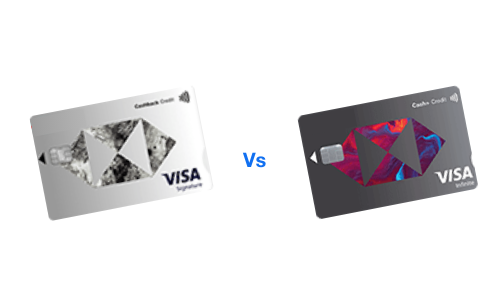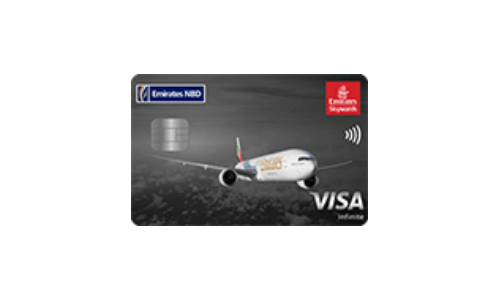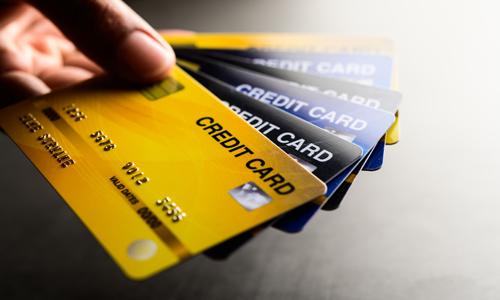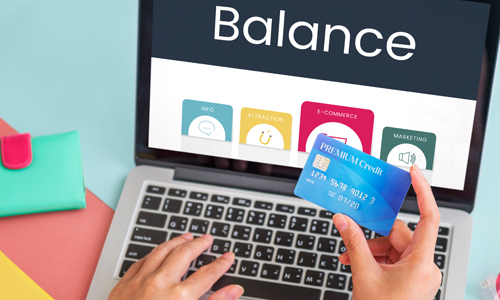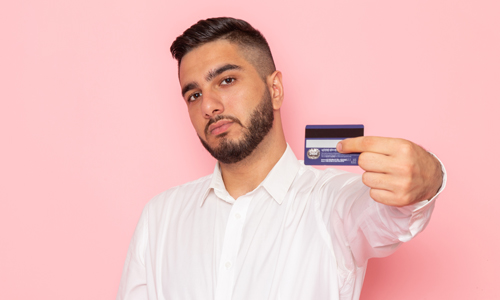- What is Credit Card Interest Rate?
- When is Interest Rate Charged on the Credit Card?
- How Is Credit Card Interest Rate Calculated in the UAE?
- What is a Credit Card Interest Free Period in the UAE?
- Interest Rates on Top Credit Cards in the UAE 2022
- Low Interest Rates Credit Cards in the UAE
- Frequently Asked Questions
How Do Credit Card Interest Rates Work? Everything You Need to Know
Apply for Credit Cards in 20 Seconds!

If you are a credit cardholder, you must be acquainted with credit card interest rates. When a bank or a financial institution issues a credit card, it levies an interest rate also known as finance charges on the outstanding amount. However, the banks apply finance charges only to those individuals who don’t repay their lent amount in full within the due date. If you understand how a credit card interest rate work, you can manage your finances efficiently.
While paying back your loan amount, you may choose to repay it in full during the interest-free period, or the minimum due amount. For payments in full, you can avoid any interest charges. However, if you pay the minimum dues, the remaining amount is converted into instalment plans which incur a monthly interest rate on your credit card. Go through the article below to know the working of credit card interest rates and their various aspects.
What is Credit Card Interest Rate?
A credit card can be thought of as a financial tool to provide quick and short-term loans. Just like any other loan, you need to repay your borrowed amount along with the charge interests. When a bank issues a credit card, it levies various charges, with the basic fees among those charges you need to pay for using the credit card. The interest rates are charged on the outstanding amount that you have spent using the credit card. However, credit card interest rates work slightly differently from other forms of loans. Most notably, you get an interest-free period before the bank starts applying the finance charges.
When is Interest Rate Charged on the Credit Card?
As already mentioned, you need to pay the interest rates only if you have surpassed the interest-free period or you have converted your outstanding amount into the instalment payment plan. There are several cases in which you get charged an interest rate on the credit card as mentioned below.
- When You Skip Payments - If you skip payments entirely during the monthly payment cycle, the bank starts charging you the interest rates on the total outstanding balance. The bank also charges interest on the new transactions that you perform from the date of transaction until you pay all the previous dues.
- On Paying the Minimum Amount Due - In case you pay the minimum amount due (MAD), the bank charges interest rates on the remaining amount from the transaction date until you pay all the previous dues in full.
- On Paying Less Than MAD - If you wish to pay less than the MAD, the entire transaction amount incurs the interest charges from the transaction date, and all the new transactions will also attract interest rates until you clear the entire previous dues.
- On Using Cash Advance Facility - When you withdraw cash through your credit card, you are using the cash advance facility. The banks in the UAE charge interest rates from the date of withdrawal until you repay the amount in full. Cash Advance credit card interest rates are quite high, and the banks don’t offer an interest-free period for using the cash advance facility.
- On carrying Forward Your Outstanding Balance - If you carry forward your outstanding balance from the previous billing cycle to the next billing cycle, the bank charges interest rates on your outstanding balance whether you opt for MAD or not. Additionally, any new transactions will also incur credit card interest rates until all the previous balances are paid in full.
How Is Credit Card Interest Rate Calculated in the UAE?
Credit Card interest rate calculation is slightly different from other loans. The finance charges shown on the credit cards during application are applied on a monthly basis at the end of every billing cycle, known as the Monthly Percentage Rates (MPR). However, the banks and financial institutions calculate the effective credit card interest rates on annual percentage rates (APR). Both MPR and APR vary by the bank and the credit card you are applying for. Consequently, you need to verify the finance charges along with the APR and MPR when purchasing a credit card.
| Credit Card Interest Calculator |
What is a Credit Card Interest Free Period in the UAE?
Something that is unique about a credit card is that it offers you an interest-free period from the date of the transaction. An interest-free period, as the name suggests, is the duration from the date of purchase until which your bank does not levy any interests if you pay the outstanding amount in full. Most credit cards in the UAE have an interest-free period of 40 to 55 days depending on the credit card.
For instance, if you own a credit card with an interest-free period of 55 days and you make a payment today, you have the option of completely paying your outstanding amount up to the next 55 days without paying any interest charges.
As a cardholder, you should strive to pay your credit card dues within the interest-free period. Besides saving you from any interest, this also helps in making a good credit Score.
Interest Rates on Top Credit Cards in the UAE 2022
The table below shows credit card interest rates for top credit cards in the UAE
|
Name of Credit Card |
Interest Rates charged |
|---|---|
|
Expo Credit Card by Emirates Islamic |
Monthly Interest Rate of 3.49% |
|
Emirates NBD Lulu Credit Card |
Monthly Interest Rate of 3.25% |
|
Monthly Interest Rate of 3.09% (without salary transfer) Monthly Interest Rate of 2.99% (With salary transfer) |
|
|
Monthly Interest Rate of 3.25% |
|
|
DIB Platinum Credit Card |
Monthly Interest Rate of up to 3.25% |
|
HSBC Zero Credit Card |
Annual Percentage Rate of 42% |
|
Monthly Interest Rate of 3.49% |
|
|
Monthly Interest Rate of 3.25% |
|
|
Monthly Interest Rate of 3.25% |
|
|
Monthly Interest Rate of 3.45% |
|
|
Monthly Interest Rate of 3.45% |
|
|
Monthly Interest Rate of 3.50% |
Low Interest Rates Credit Cards in the UAE
Low-interest Rate credit cards can benefit you in numerous ways. On making bigger purchases, you can convert them into instalment payment plans and enjoy low-interest charges. Additionally, your overall annual percentage rate remains low saving your expenses. The following is the list of low interest rates credit cards in the UAE.
|
Name of Credit Card |
Monthly Interest Rate Charged |
|---|---|
|
3.45% per month |
|
|
1.95% per month |
|
|
2.79% per month |
|
|
3.25% per month |
|
|
2.5% per month |
| Best Low Interest Rate Credit Cards in UAE |
Frequently Asked Questions
Ans. Credit card interest rates are decided by the issuing banks and financial institutions. They can change the interest rates at their discretion with prior notice to the cardholder.
Ans. Yes, on paying the minimum amount due, you incur an interest rate on the remaining amount from the date of transaction until the outstanding amount is paid in full. Additionally, the interest-free period is also revoked.
Ans. Credit cards offer instant loans up to your credit limit without any prior approval. However, the cardholder poses risk to the bank of non-payment of the dues. In such cases, the bank has to bear the losses until the payment is made. A high-interest rate ensures that the cardholder timely pays their dues to avoid high charges.
Ans. No, not all credit cards have an interest free period as the bank offers this facility at its discretion. In the UAE, most credit cards have interest-free periods ranging from 25 to 55 days. You need to verify the duration at the time of credit card application.
Ans. Yes, most credit card issuers provide easy payment plans or instalment payment plans where you can convert your bigger purchases into convenient monthly instalments. However, you will need to pay the credit card interest rates as decided by your bank.
Ans. Yes, you can pay your outstanding amounts after the due dates. However, you will also need to pay the penalties along with interest charges from the date of the transaction.
Ans. In a few cases, you may get a 0% interest rate on your transaction. The credit card issuers occasionally provide offers at several merchants and outlets. If you make spending at those locations, you are not charged any interest rates.
More From Credit Cards
- Recent Articles
- Popular Articles









